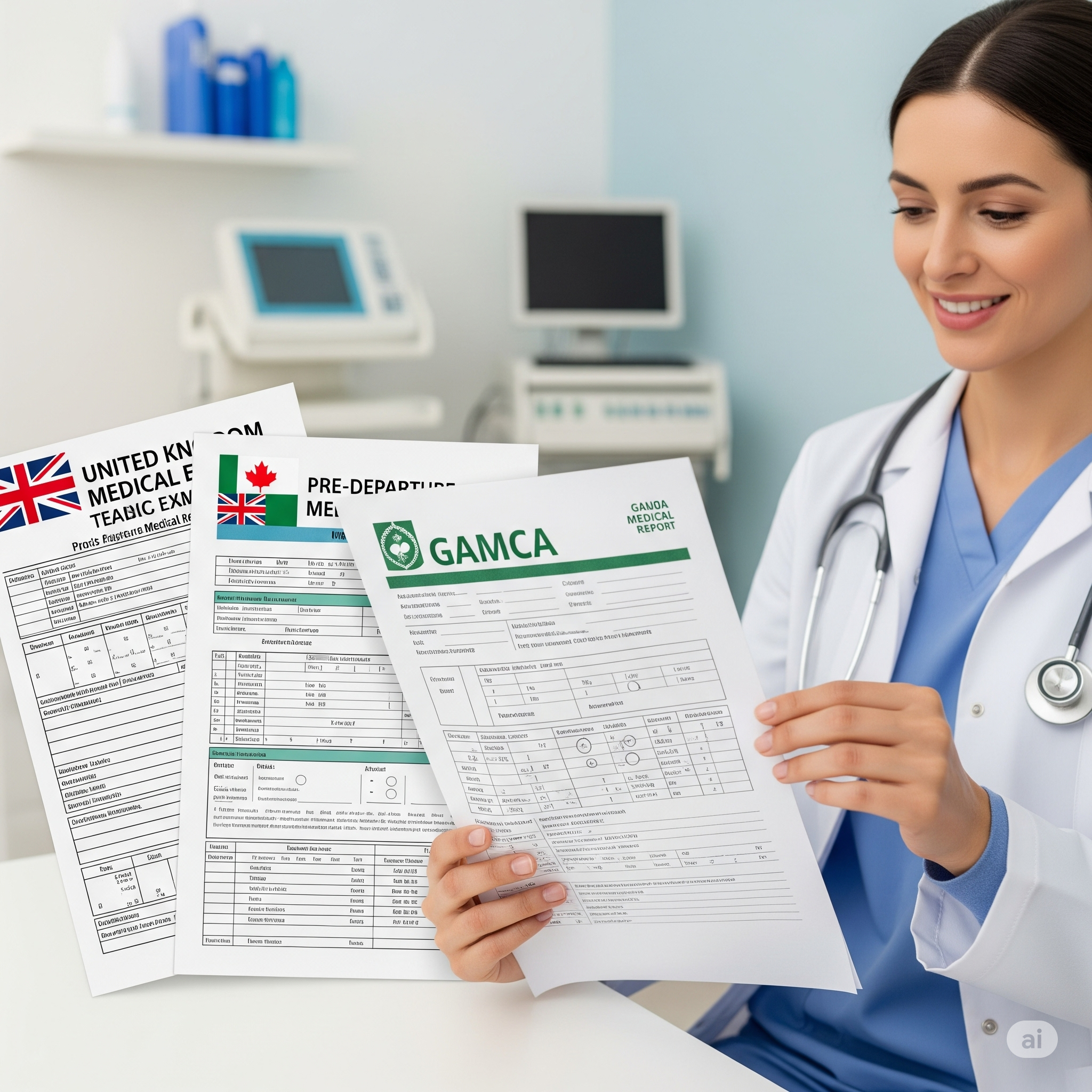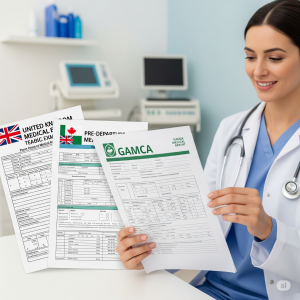Our Links
Contact Us
69D/7 Tiljala Rd, Kolkata, West Bengal 700046
Copyright © 2025 Gulf Medical Service All rights reserved.


The GAMCA (Gulf Approved Medical Centers Association) medical test is unique because of its specific purpose, strict requirements, and centralized system for GCC (Gulf Cooperation Council) countries. This is in contrast to many other countries that require some sort of medical screening for immigration, employment, or long-term stays. The main distinctions between GAMCA and other pre-departure medical testing are broken down as follows:
While ensuring public health and individual fitness is the goal of all pre-departure medical tests, GAMCA stands out due to its intensely focused approach to GCC immigration, its centralized and non-negotiable clinic assignment, and its stringent infectious disease requirements, which can have serious repercussions for visa applicants.